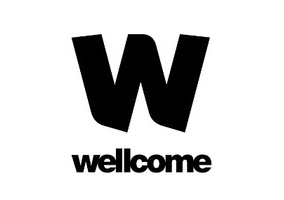The wealthiest charity in the country caused some controversy this week when it advertised for a newly created £211,500 role to lead on its equity, diversity and inclusion (EDI) strategy.
Wellcome’s chief EDI officer job ad sparked debated within the charity sector about the merits of such roles while its pay level attracted external criticism about remuneration at third sector organisations.
News coverage
The Telegraph ran a news story with a line that the charity was recruiting an EDI lead “to work two days in the office, months after closing its Medicine Man museum display”. This referred to the Wellcome Collection’s decision to close its Medicine Man exhibitions as it displayed “a version of medical history that is based on racist, sexist and ableist theories and language”.
It is unclear what the connection, also made by a speaker on LBC, is between the new role’s flexible working arrangements and a decision taken by Wellcome’s subsidiary last year. The general unspoken accusation seems to be that the charity has been overtaken by a “woke” ideology and that it should not have made these attempts to address its internal racism.
Inaction on anti-racism
Wellcome has tried to confront inequalities within its organisation in recent years.
In 2020, the charity admitted that it “perpetrated racism” and committed to tackling the problem by adopting anti-racist principles, making more resources available and offering training to its employees.
Then last year, an independent review commissioned by Wellcome ruled that the charity had made “insufficient progress” on these initiatives and remained an “institutionally racist organisation”.
The damning report said Wellcome’s “harmful action and inaction” had implications beyond the charity as it was “perpetuating and exacerbating systemic racism within the wider research sector which it operates”.
Therefore, the need for Wellcome to increase its anti-racist activity and bring in expertise to drive this is clear.
A fair salary?
On the face of it, £211,500 is a lot of money for any organisation to pay someone.
According to Glassdoor, the average salary for such a role in the UK is around £100,000, with few organisations of any kind offering more than Wellcome.
Meanwhile, other charities are paying their diversity leads far less. Deafblindness charity Sense’s EDI lead earns £53,262 while the Health Foundation is offering £60,236 for a similar position. The National Theatre recently advertised a head of EDI role at £50,000-£60,000, while the RSPCA offered £65,000 to its head of diversity and inclusion.
But Wellcome’s chief EDI officer will not be one of the charity’s highest paid staff.
Asked why it is offering such a high pay reward, a Wellcome spokesperson said it, like all salaries at the charity, was “benchmarked to the marketplace for equivalent roles”.
“This is a critical leadership role which will improve equity, diversity and inclusion across our work. The post-holder will be a member of Wellcome’s executive leadership team,” they added.
Wellcome also referred to its vast size and the atypical way it is funded when explaining the salary level.
The charity had £37.8bn in net investment assets at the end of September last year, around four times the size of any other UK charity, and spent £1.5bn in the previous 12 months.
It gets most of its income (£502m in 2021-22) from investments (£366m), instead of donations from the general public.
According to its latest accounts, 18 members of its investment team earned more in 2021-22, with two highest earners receiving more than £4m.
So, for Wellcome, you could argue that £211,500 is a relatively moderate sum.
A waste of money?
Many charities have introduced EDI strategies in recent years and appointed staff to newly created roles to lead on these. But some in the sector have challenged the effectiveness of this action.
Charity sector consultant Martha Awojobi said at an event last year that while some charities had introduced effective EDI strategies, most were a “waste of money”.
They went further to say that the ineffectiveness of so many charities’ EDI strategies was “watering down the revolutionary potential of anti-racism as it tries to fit it into a white framework”.
There have also been suggestions that charities should be made to report more diversity figures to track what progress is being made.
Last year 65 charities and campaigners wrote to the Charity Commission, urging it to require voluntary organisations to report diversity information about their senior leaders and trustees. More recently, Sense’s chief executive Richard Kramer said all charities should be required to not only report their gender pay gap, but their equivalent ethnicity and disability figures too.
Wellcome’s EDI efforts have indeed been ineffective so far, according to last year’s report. But investing in an executive level role to accelerate the charity’s progress is surely the right course of action. The only question might be why it did not do so earlier.
It deserves some credit for clearly displaying the £211,500 salary for the role, no doubt understanding the criticism the high figure might attract. As the Show the Salary campaign has argued, salary secrecy perpetuates inequality, particularly towards underrepresented groups. Nevertheless, many organisations of a similar size to Wellcome would not publish salaries for executive roles.
But the proof will be in the pudding. Wellcome’s EDI investment must lead to progress towards anti-racism within the organisation and the wider research sector. For now, the high-paid role looks like a step in the right direction, but time will tell if it has been a waste of money.
Related articles










